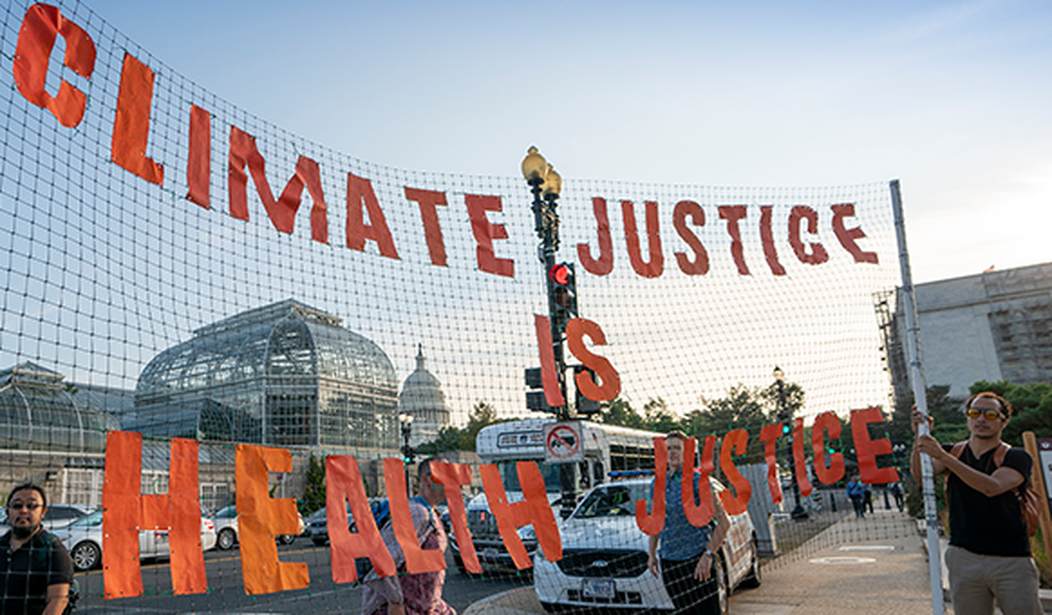There’s a new trend coming out of the environmentalist movement: “Zero waste” living.
Armed with images of straw-nosed turtles and trashed beaches, activists have urged their neighbors to stop using any single-use products. At home, at the office, and anywhere else, the goal is to throw nothing away.
It sounds nice, but many people quickly realize they have zero clue how much harder their lives would be without single-use products.
To understand why, let’s venture into a zero-waste grocery store, the likes of which are popping up in cities across the country.
Nearly everything is sold by weight, and everything you buy must leave the store in a container you brought. Need olive oil? Bring a bottle, weigh the bottle, add the oil, weigh the bottle again, write down the weight and price. Need peanut butter? Follow the same program. Baking cookies? You better bring containers for the flour, sugar, brown sugar, butter, and chocolate chips. (And make sure to wash out that raw chicken container.)
Sounds fun, right?
Single-use products are part of daily life--and that’s a good thing. Do we really want to live in a world where everything is reusable? How does reusable toilet paper sound? (It’s the adult version of diapers.) What about getting rid of condoms or tampon applicators? Reusable dog poop bags? Band-Aids?
These examples may seem absurd, but they have all been recommended by environmental activists.
The Break Free From Plastic coalition, which helped draft Congress’s Break From From Plastic Act, has developed a “B.A.N.” list of household products it doesn’t think you should use. The list includes condoms, bottles, food wrappers, tampon applicators, disposable diapers, and more.
Recommended
Instead of using food wrappers, buy in bulk from zero-waste stores. Instead of condoms, use “natural bio-based material” -- whatever that means.
These activist campaigns ignore an important reality. We need single-use products, especially during emergencies. It is scary to imagine how we would have fared in a pandemic if plastic syringes, latex gloves, and N95 masks were banned. And we certainly don’t want to find out how difficult it would be to distribute water after a natural disaster when the last thing anyone had on their mind was grabbing a refillable jug and glasses for their family as they fled their homes. As H.L. Menken observed, “For every complex problem there is an answer that is clear, simple, and wrong.”
Eliminating single-use products would make life more difficult and less safe. Yet many environmentalists say it is necessary to protect the planet. But is it?
The United States is responsible for roughly one percent of the mismanaged trash in the ocean. In fact, more than 90 percent of ocean trash can be traced back to just 10 rivers in Africa and Asia. The Great Pacific Garbage Patch, a Texas-sized mass of trash, consists mostly of fishing gear. Much of this was pulled out to sea following the 2011 tsunami in Japan.
Pollution is a problem, but it isn’t an American problem. As a whole, our trash ends up where it belongs: waste and recycling facilities. And there is reason to be optimistic about recycling around the world. Historically, some plastic has been difficult to recycle because some resins, such as polystyrene, are difficult to recycle while water, soda, and juice bottles are easily recycled. The problems with thicker plastics, however, could soon subside. Researchers have developed new ways to recycle, including chemical recycling which can break down any type of plastic. Such innovations have been endorsed by top environmentalists, including Sir David Attenborough.
It is admirable to reduce waste and there are many reasonable ways for families to do so without sacrificing their health or safety. There are also ways to reduce waste without having to bring every jar you own to the grocery store. Families should simply ensure that they use what they buy and recycle what they can.
Madison Dibble is a research associate for the Center for Accountability in Science.

























Join the conversation as a VIP Member